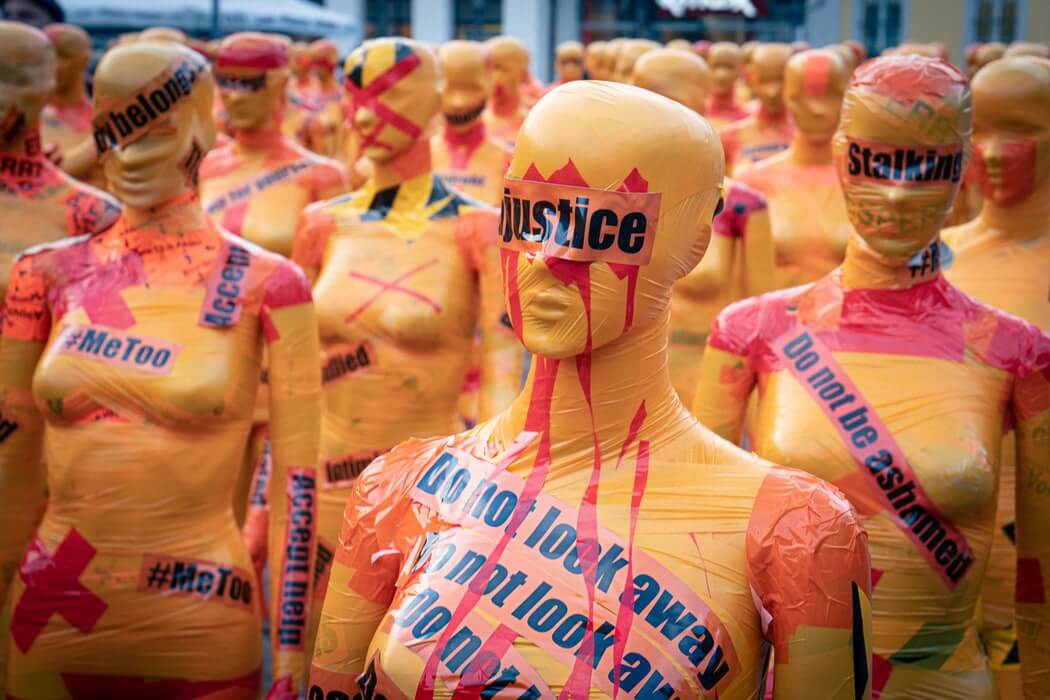Ukraine
On December 10, 2020, the new, free from gender stereotypes online medium Fight Like a Girl was launched in Ukraine. It aims to equip young women and girls with useful tips on legal and sexual security and physical self-defense against gender-based violence amidst the COVID-19 pandemic. Its launch marks the beginning of a dedicated campaign that will roll out fifteen videos in social media through December 2020 and January 2021.
“Gender-based and domestic violence are human rights violations. Gender stereotypes fuel the continuous existence of this plight. Equipping young people, notably girls and young women against violence, and giving them tools to dismantle stereotypes is key to a more democratic, safer and more prosperous future. There could not be a better name for this campaign than #fightlikeagirl and the EU is happy support UN Women, UNFPA and Gender Stream as representatives of Ukrainian civil society in its implementation”, said Martin Schroeder, Head of the Local and Human Development Section at the EU Delegation to Ukraine.
The campaign is the part of the global campaign 16 Days of Activism Against Gender-Based Violence, which takes place annually from 25 November, the International Day for the Elimination of Violence against Women, till 10 December, Human Rights Day.
The project Fight Like a Girl launches fifteen entertaining explanatory videos that will debunk stereotypes on women and girls and teach the audience how to identify different forms of gender-based violence and understand some forms of cybercrimes that affect women and girls. Consent to sex, sexual security during COVID-19 pandemic, understanding toxic relationships will bring up and explain essential topics for girls and young women. The series of videos on self-defense, created in partnership with the National Police of Ukraine, will teach women and girls how to respond to potential attacks of an abuser and ensure safe escape.
The campaign is produced by the NGO Gender Stream, a grassroots women’s rights initiative from Dnipro, and UN Women in Ukraine. It speaks in a friendly and fun voice of a trusted peer and friend on a Instagram account @FLG_UA, and promotes the hashtags #бийсяякдівчина #fightlikeagirl.
In a series of 15 videos, the audience will hear the voices of Ukrainian influencers:
Stanislav Korolev, musician, member of the band “Yuko”;
Oleksandra Gontar, journalist of the Toronto Television YouTube project and poet;
Volodymyr Beglov, Head of the Human Rights Education Center in Lviv;
Natalia Shevchuk, Director General of the Social Film and Advertising Festival;
Olga Zhukovtsova, actress of the Women’s Quartal;
Katro Zauber, Ukrainian DJ
Vitaliy Zhadan, tactical training instructor, National Police of Ukraine.
“I hope that the project Fight like a girl will reach many women and girls, and it will empower them to change their lives. In a society where you do not feel protected, it is vital to finally try to create security for yourself (as much as possible)”, – said Oleksandra Gontar, TV host and participant of the project.
Background information:
In Ukraine and worldwide, gender-based violence is widespread and systematic, gaining even more momentum during the COVID-19 pandemic. Almost half (49%) of women in Ukraine say they have experienced sexual harassment. Under quarantine, the number of registered domestic violence cases rose to over 54%[1], and the number of calls to the National Hotline for the Prevention of Domestic Violence doubled[2].
The campaign was produced in the framework of the “EU 4 Gender Equality: Together against gender stereotypes and gender-based violence” programme, funded by the European Union, implemented jointly by UN Women and UNFPA. The videos were produced with the financial support of the European Union. Their contents are the sole responsibility of the author and do not necessarily reflect the views of the European Union.
For further information, please contact Narmina Strishenets, Communication and Advocacy Analyst, UN Women Ukraine: [email protected] or +38(050) 425-79-30.
[1] National Police Statistics as of 9 months, 2020 vs 2019
[2] UNFPA, 2020














